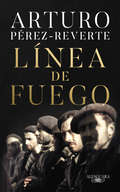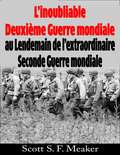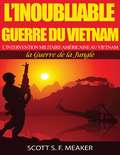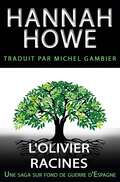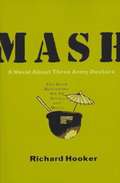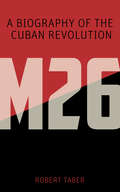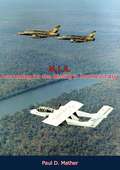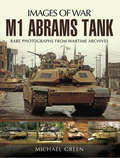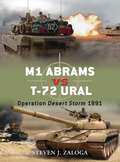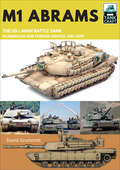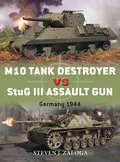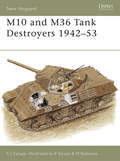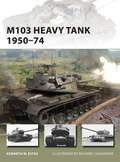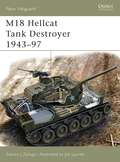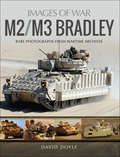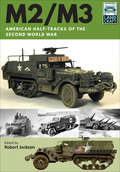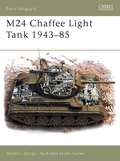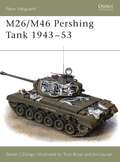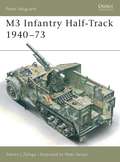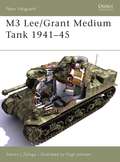- Table View
- List View
Lágrimas del sol naciente dorado: perspectiva de testigo ocular en la historia de Biafra
by Ikechukwu JosephPero Emily se despertó en una granja abandonada. Parecía más somnolienta y adormilada. Ella no podía reconocerse a sí misma. Todo lo que podía escuchar eran los cantos de las ranas toro y la correspondiente respuesta más ligera de su contraparte femenina. Sándwich en el medio estaban las bocinas de vehículos distantes. Emily se durmió de nuevo como un tronco. El sueño era tan dulce ahora. El sedante no solo indujo el sueño, sino que también tuvo un efecto calmante y calmante. Ya estaba amaneciendo con adoradores del sol y pájaros del sol haciendo lo suyo cuando la pobre Emily se despertó. Todavía estaba cansada y aturdida. "¡Hola! ¡Hola! ¿Hay alguien ahí?" Trató de levantarse pero sus manos y piernas estaban atadas a la silla. Aterrada, gritó, pero nadie pudo oírla. Al mirar por la ventana vio un sedán rojo aparcado en lo que parecía la parte trasera del corral. Emily luchó por liberarse, pero estaba muy débil. El efecto de los sedantes. Miró a su alrededor y vio una pistola a un lado de la habitación. Ha pasado mucho tiempo que vio uno desde que escapó de la zona de guerra. Su fuerte voluntad luchó contra el pánico en su voz. "Bebé, ¿estás despierto?" Una voz ronca se acercó por detrás y tocó su cuello, masajeando. Emily se estremeció al recordar todas las historias tanto de MM como de las novelas. El violador en serie, los secuestradores y ritualista. "¿Pero qué hice?" Miró al anciano con cabello gris y ojos llameantes. "Bebé, tienes que comer para tener fuerzas para luchar contra tus enemigos ..." Cuando Angelo abrió una de las pilas de bolsas, algo que parecía un hueso humano se cayó. Lo besó y se rió histéricamente murmurando palabras como "su carne era muy dulce, dulce señora, su esposo debe haberte extrañado. Espero que Dios me dé otro como tú que rompa la regla número uno". Entonces Emily se dio cuenta de que había sido presa de un caníbal humano. Rezó todas las oraciones, pero parecía no tener
Léon y Louise
by Alex CapusExquisita por su ligereza y conmovedora por su intensidad, la verosimilitud del relato sorprenderá al lector más avezado. Obra finalista del Deutscher Buchpreis -uno de los premios literarios de referencia en Alemania-, esta última novela de Alex Capus es la máxima expresión de una historia de amor que desafía todas las convenciones. El verano de 1918, la Primera Guerra Mundial está a punto de terminar, pero sus consecuencias perdurarán durante décadas. Para algunas personas, incluso toda una vida. Léon le Gall es un joven rebelde de apenas diecisiete años que ha decidido dejar los estudios y trabaja como ayudante en la estación ferroviaria de Saint-Luc-sur-Marne, en la costa de Normandía. Allí es donde conoce a la hermosa y esquiva Louise Janvier, y entre ellos surge un sentimiento puro, noble y profundo. Sin embargo, todo salta por los aires cuando Louise desaparece durante un bombardeo de la aviación alemana. Abatido porla pérdida, Léon logra reconstruir su vida. Se casa, tiene hijos y empieza a trabajar como científico para la policía, pero nunca conseguirá olvidar a Louise. La crítica ha dicho...«Entre todas las parejas de enamorados, felices o infelices, que nos ha presentado la literatura, la de Léon y Louise es una de las más originales y creíbles.»Süddeutsche Zeitung «El libro de esta primavera. Una historia maravillosa que deja un vacío cuando uno termina de leerla. Y que nos hace desear secretamente encontrar a alguien como Léon en la próxima vida. O a alguien como Louise.»WDR «La historia de un amor que se opone a la historia del mundo. Una pieza literaria finamente trabajada sobre el deseo de lograr la felicidad, sobre la conformidad y la supervivencia.»Tages-Anzeiger «Este libro elige a sus lectores. [...] Alex Capus ha escrito una fascinante historia de amor en circunstancias difíciles [...]. Una historia bellísima que lo es tanto por su estilo como por todo aquello que el lenguaje no puede describir.»Frankfurter Allgemeine Zeitung «A simple vista, ésta es una historia de un amor que perdura. Pero también habla de los abusos de poder, especialmente en tiempos de guerra, y de los sacrificios que el ser humano debe hacer para preservar aquello que más ama.»Publishers Weekly
Línea de fuego
by Arturo Pérez-ReverteLA NUEVA NOVELA DE ARTURO PÉREZ-REVERTE Julio de 1938, miles de jóvenes combaten en la trágica batalla del Ebro. Sus nombres no son los que recuerda la Historia, pero cuanto les sucedió forma parte de nuestra memoria. «Es lo malo de estas guerras. Que oyes al enemigo llamar a su madre en el mismo idioma que tú.» Durante la noche del 24 al 25 de julio de 1938, la XI Brigada Mixta del ejército de la República cruza el río para establecer una cabeza de puente en Castellets del Segre. En las inmediaciones del pueblo, medio batallón de infantería, un tabor marroquí y una compañía de la Legión defienden la zona. Está a punto de comenzar la batalla del Ebro, la máscruda y sangrienta que se libró nunca en suelo español. Combinando de forma magistral la ficción con datos históricos y testimonios personales, Arturo Pérez-Reverte sitúa al lector, con sobrecogedor realismo, entre quienes, voluntarios o a la fuerza, lucharon en los frentes de batalla de la Guerra Civil. Sus nombres no son los que recuerda la Historia, pero cuanto les sucedió resuena en estas páginas con el dramatismo de una memoria que nos pertenece a todos. Ésta no es una novela sobre la Guerra Civil, sino sobre los hombres y mujeres que combatieron en ella. La historia de los padres y abuelos de numerosos españoles de hoy. La crítica ha dicho:«La novela definitiva sobre la Guerra Civil española. [Un] proyecto literario inmenso, envolvente y, pese a la crudeza del relato, poderosamente fascinante por la trascendencia del momento en que nos sumerge.»Sergio Vila-Sanjuán, Cultura/s, La Vanguardia «Un libro asombroso, durísimo y brillante. Todo está ahí, todo en esas páginas escritas con un pulso y una habilidad endiabladas. Un libro para leer, para meditar y al que hay que volver. Línea de fuego es una obra maestra, una catedral literaria y la mejor novela de Arturo Pérez-Reverte.»Juan Gómez-Jurado, El Correo «La batalla del Ebro fue emblemática [...]. Allí ha recalado Pérez-Reverte con la cámara de sus ojos y calidad de su escritura para decirnos que el horror y la piedad, la sinrazón y el heroísmo no son ideas, son vida y cuerpos, que necesitaban de un gran novelista que supiera contarlos.»José María Pozuelo Yvancos, ABCultural «Un relato épico del mejor novelista de nuestro tiempo.»Raúl del Pozo, El Mundo «680 páginas hipnóticas, intensas en emoción y humanidad.»Javier Ors, La Razón «Hay mucha más verdad histórica en Línea de fuego que en la Historia que nos quieren contar los políticos.»Julia Navarro «No va a dejar a nadie indiferente. Sabe de lo que habla, y ha sabido contarlo.»Jesús García Calero, ABC «Una novela de madurez sobre el desconcierto, el desamparo y el miedo.»Antonio Lucas, El Mundo «Línea de fuego, en fin, es una gran novela, muy española, justo cuando ya no sabemos qué es lo español.»Alberto Olmos, El Confidencial «Inmensa, estremecedora e imprescindible. Una obra que se asoma y se adentra hasta el corazón de la peor tragedia vivida en los últimos siglos por nuestra patria y nuestras gentes. [...] Una novela de hueso y carne viva. Sin grasa. Es un Arturo Pérez Reverte en su más espléndida madurez literaria despojada más todavía que nunca de condicionantes.»Antonio Pérez Henares, El Día de Valladolid «Pérez-Reverte nos regala una obra maestra que se adentra en la Guerra Civil española [...] para darnos una quintaesencia no solo del choque sino del alma fratricida de todala
L’inoubliable Deuxième Guerre mondiale: au Lendemain de l’extraordinaire Seconde Guerre mondiale
by Hanène Baatout Scott S. F. Meaker*** Ceci est un petit ouvrage qui se focalise sur le lendemain de l'extraordinaire Seconde Guerre mondiale *** La guerre a la tradition de changer la carte sociale et économique d'un pays. Le concept de famille a été complètement déchiré avec la dévastation généralisée de la Seconde Guerre mondiale. Ce livre se penche sur les expériences de six personnes provenant de divers secteurs impliqués dans ce conflit mondial - à la suite de l'extraordinaire Seconde Guerre mondiale.
L’inoubliable Guerre du Vietnam: l’Intervention militaire américaine au Vietnam – la Guerre de la Jungle
by Hanène Baatout Scott S. F. MeakerNote: ***** Ceci est un petit ouvrage portant sur la guerre du Vietnam. ***** La guerre du Vietnam a été menée comme une guerre et elle s'est terminée avec chacune des deux parties croyant être les vainqueurs. Mais cette guerre n'a pas commencé avec une déclaration de guerre officielle. Le nombre de luttes pour le pouvoir qui font partie de la toile vietnamienne est presque écrasant. Les batailles étaient courtes et intenses et ont été menées dans la jungle et les rizières. Une grande partie de la guerre a impliqué des attaques de guérilla.
L’olivier: Racines (L’olivier #1)
by Hannah HoweL’olivier, une saga sur fond de guerre civile espagnole Se déroulant entre avril 1937 et décembre 1938, L’olivier est une mini-série de cinq mini-romans basée sur des événements réels. Les cinq tomes — Racines, Branches, Feuilles, Fruit et Fleurs — retracent les vies d’Heini Hopkins, une jeune infirmière d’un coin misérable du sud du Pays de Galles, et de Naomi Parker, une riche écrivaine issue d’un milieu privilégié. Dans le premier tome, Racines, Heini est chez elle, au Pays de Galles, où elle s’occupe de sa mère malade, tandis que Naomi assiste à des soirées de lancement de son dernier roman. La guerre civile espagnole semble a des années-lumière, jusqu’à ce que les fascistes rasent Guernica en la bombardant, massacrant des centaines d’hommes, de femmes et d’enfants. Le petit copain d’Heini, Deiniol Price, un mineur, se demande s’il n’est pas de son devoir de rallier la cause des républicains espagnols et de se porter volontaire auprès des Brigades internationales tandis que l’amant de Naomi, le prince Nicolas Esteban, un pilote, rêve de gloire en combattant pour les fascistes. Nos deux femmes devraient-elles quitter la tranquillité du Pays de Galles pour les champs de bataille sanglants de l’Espagne ? Et si elles se décidaient à suivre leurs hommes, qu’est-ce que le destin leur réserve ?
M*A*S*H: A Novel About Three Army Doctors
by Richard HookerBefore there were the movie and the television series, there was the novel that gave birth to such American immortals as Hawkeye and Trapper John, Hot Lips Houlihan, Frank Burns, Radar O'Reilly, and the rest of the 4077th MASH--a place like no place else in Korea or on earth. The doctors and nurses who worked in the Mobile Army Surgical Hospitals (MASH) during the Korean War were well trained, dedicated, and pushed to the brink. And they were young--too young to be doing what they had to do. As Richard Hooker writes in the Foreword, "A few flipped their lids, but most of them just raised hell, in a variety of ways and degrees." Meet the true-life heroes and lunatics who fought in the Korean War, and experience the martini-laced mornings, marathon hijinks, sexual escapades, and that perfectly corrupt football game that every fan of the movie will remember. It's also a story of hard work and skill in the face of enormous pressure and odds. Here is where it all began--the novel that made M *A *S *H a legend.
M*a*s*h Goes To Paris
by Richard Hooker William E. ButterworthWhen HAWKEYE, king of the links and surgeon extraordinaire TRAPPER JOHN, bon vivant of the operating room and so good with his hands HOT LIPS, who's discovered... well... religion RADAR, with his great new idea for a fast-food empire and the rest of the lunatic crew from M*A*S*H hit the sin city on the Seine, the French had better look out! Things happen fast, funny and furious when the inimitable ambassadors of goodwill and goonery arrive, bringing inevitable chaos in their wake.
M-26: A Biography of the Cuban Revolution
by Robert TaberM-26: A Biography of the Cuban Revolution, first published in 1961, is a reporter’s account of the overthrow of the Batista regime and Fidel Castro’s successful rise to power. Author Robert Taber, a correspondent for CBS, details the political and economic situation which helped foster the revolution, plus chronicles events of the revolution and his experiences while living with the guerrilla fighters in Cuba’s mountainous interior. M26 (the name is from an earlier unsuccessful uprising—Movimiento Revolucionario—led by Castro in July, 1953) is a valuable resource for anyone seeking a well-written account of this critical period in Cuba’s history.
M.I.A.: Accounting for the Missing in Southeast Asia
by Paul D. MatherAmong the numerous analyses of those missing in action in Southeast Asia, this study is the first to concentrate on the process whereby the US military tried to resolve each case. Much of the continuing controversy ignores or refuses to accept the fact that the US Government, through the Joint Casualty Resolution Center and other mechanisms, has made a thorough, sustained, good faith effort to determine the fate of every serviceman declared missing in action in that conflict. The author, who spent more than 15 years in Southeast Asia taking part in those endeavors, tells the story of this unique effort from the point of view of an informed insider.A member of the MIA search team from the early 1970s through the late 1980s, Paul Mather is well qualified to relate the history of this effort. He covers a wide range of topics, from field work at crash sites and personal interchanges with Vietnamese, Cambodian, Lao, and Thai officials, through the various international accords that governed the activities of the US investigatory teams. Although political changes in the United States alternately facilitated or hampered search efforts, the attempt to resolve every case never ceased. Colonel Mather faithfully records the efforts of individuals and organizations that played major roles in. this drama: congressional committees; the National League of Families; private citizens who made sincere efforts to help; senior government officials like General John Vessey, who headed a special full-accounting commission; military agencies such as the Joint Casualty Resolution Center and the Army’s Central Identification Laboratory; scoundrels and swindlers who exploited the tragedy for personal gain; and self-styled Rambos who acted on their own.This account should help to wrap up an especially emotional chapter of the Vietnam War. By telling how the process worked for almost two decades, it contributes to the full accounting desired by all.
M1 Abrams Tank (Images of War)
by Michael GreenThis pictorial history of the legendary M1 Abrams Tank illustrates its versatility and advancement from the Cold War Era to the present day. The M1 Abrams has proved itself to be the finest main battle tank in the world since its introduction into US Army service in 1981. It combines the ultimate balance between firepower, mobility and protection as demonstrated by its superior performance during the two Gulf Wars and in Afghanistan. It routed the Soviet equipment of Saddam Hussein's army and today remains the yardstick by which friends' and foes' MBTs are judged. As military expert Michael Green demonstrates in this illustrated history, the M1&’s versatility, and its continual modernization of weaponry armor and engineering, guarantees that it will remain the US Army's spearpoint for years to come. With its comprehensive collection of images and authoritative text, this volume is an ideal resource for information on M1 Abrams Tank design and combat operations.
M1 Abrams vs T-72 Ural: Operation Desert Storm 1991
by Steven J. Zaloga Jim LaurierThe Gulf War bore witness to a number of deadly encounters between these two great adversaries. Heavily armored, highly mobile and capable of killing at over 2500m the M1 Abrams is, to this day, a veritable fighting machine. Superior to both Iraq's Soviet era T-55 and T-62 tanks, nearly all sources claim that no Abrams tank has ever been destroyed by enemy fire. Despite entering service in 1980, the M1 Abrams remained untested in combat until the Gulf War in 1991, where it was to be confronted by its archenemy the Iraqi-assembled Soviet-designed T-72. Entering production in 1971, the T-72 arguably outstripped its contemporaries in a balance of mobility, protection and firepower. By the time of Operation Desert Storm, however, the tables had turned and the tank suffered due to low quality ammunition and poorly trained crews. In this fascinating study, Steven Zaloga pits these two great fighting machines against one another, plotting the development of the Cold War until both tanks met in combat in the deserts of Iraq and Kuwait. From the Trade Paperback edition.
M1 Abrams: Rare Photographs From Wartime Archives (Images of War)
by David DoyleA photographic history of the principal main battle tank of the modern US military. Conceived to counter the threat of a massive Soviet armored incursion in Europe, the M1 Abrams tank gained considerable fame during the Persian Gulf War of 1991, and its combat record has continued to climb. With such a long service life, the Abrams has undergone continual improvements and upgrades, which are illustrated in great detail in this volume. The unique features of the various models are detailed in stunning color photos, and the combat use of these fearsome vehicles is richly illustrated through previously unpublished photos. The story of the Abrams begins in the late 1960s when the threat of Soviet Armor developments forced the U.S. to look for a suitable replacement for the M60 series. A joint venture between the U.S. and West Germany to build a suitable common Main Battle Tank brought about the unorthodox and terribly expensive MBT70. It never saw series production. When this program was cancelled in 1970, a quest for a more cost-effective tank was begun. The constant development, upgrade, and conversion of the series have kept the Abrams at the forefront of main battle tank technology—and it has proven itself on the battlefield time and time again. This book, filled with rare archival photos, takes us through decades of its remarkable history, including improvements to its armor, transmission, and engine; the addition of an integrated nuclear, biological, and chemical system; the installation of a layer of depleted uranium and interior blast doors to protect the crew, and more.
M1 Abrams: The US's Main Battle Tank in American and Foreign Service, 1981–2019 (Tank Craft)
by David GrummittA history of the iconic vehicle: &“This modeler's delight showcases the M1 and its variations with all sorts of camouflage schemes.&” —Historical Miniatures Gaming Society Since its introduction in 1981, at the height of the Cold War, the Abrams main battle tank has been one of the most visible symbols of American military power, and it is the fascinating subject of this heavily illustrated historical and modeling guide in the TankCraft series by David Grummitt. Designed to meet head-on the massed tank forces of the Warsaw Pact, its combat debut actually came in a different scenario in 1991, during the First Gulf War. Since then it has served in a peacekeeping role in the former Yugoslavia and seen combat in Iraq, Afghanistan, and Yemen. It has gone through a series of modifications and modernizations that see it set to remain the backbone of the US Army until at least 2050. As well as charting the development and combat history of the vehicle, this book is illustrated throughout with color photos and specially commissioned color profiles. Five different models, covering the service history of the Abrams, are featured, as is a modeler&’s guide to the existing kits and accessories in the all the popular scales.
M1 Abrams: The US's Main Battle Tank in American and Foreign Service, 1981–2019 (Tank Craft)
by David GrummittA history of the iconic vehicle: &“This modeler's delight showcases the M1 and its variations with all sorts of camouflage schemes.&” —Historical Miniatures Gaming Society Since its introduction in 1981, at the height of the Cold War, the Abrams main battle tank has been one of the most visible symbols of American military power, and it is the fascinating subject of this heavily illustrated historical and modeling guide in the TankCraft series by David Grummitt. Designed to meet head-on the massed tank forces of the Warsaw Pact, its combat debut actually came in a different scenario in 1991, during the First Gulf War. Since then it has served in a peacekeeping role in the former Yugoslavia and seen combat in Iraq, Afghanistan, and Yemen. It has gone through a series of modifications and modernizations that see it set to remain the backbone of the US Army until at least 2050. As well as charting the development and combat history of the vehicle, this book is illustrated throughout with color photos and specially commissioned color profiles. Five different models, covering the service history of the Abrams, are featured, as is a modeler&’s guide to the existing kits and accessories in the all the popular scales.
M10 Tank Destroyer vs StuG III Assault Gun
by Steven Zaloga Richard ChasemoreAlthough tanks like the Sherman and Panther captured the headlines, the Allies' M10 tank destroyer and the Germans' Sturmgeschütz (StuG) III were the unsung workhorses of the northwest European battlefields of 1944-45. While their mission was not principally fighting one another, their widespread use ensured their frequent encounters, from the Normandy bocage to the rubble-strewn streets of Aachen. The StuG III was the quintessential assault gun: a low-slung, heavily armored, turretless vehicle intended to provide direct-fire support for infantry formations. It was a jack of all trades, being used both for the traditional direct-fire role, but also increasingly for antitank defense; when its armament was improved from a short 75mm gun to the better-known long 75mm gun, it reached its pinnacle and remained largely unchanged from 1943 to 1945. It proved exceptionally valuable in Normandy as its low profile and excellent armament made it a useful infantry support weapon while at the same time it had more than adequate firepower to destroy standard Allied tanks such as the Sherman.The M10 3in Gun Motor Carriage was originally developed as a tank destroyer. It was based on the Sherman tank chassis but with less armor and a more powerful gun. By 1944, however, its 3in gun proved ineffectual against the most thickly armored German tanks such as the Panther and Tiger. As a result, by 1944, the US Army's M10 battalions were usually deployed in support of US infantry divisions to conduct direct-fire support. Essentially, the M10 became the US Army's principal assault gun in the 1944-45 ETO campaign, whether intended for this role or not.Widely deployed in roles their designers had not envisaged, these two armored fighting vehicles clashed repeatedly during the 11-month campaign that saw the Allies advance from Normandy to the heart of the Reich. Fully illustrated with specially commissioned artwork, this is the story of their confrontation at the height of World War II.
M10 and M36 Tank Destroyers 1942-53
by Steven Zaloga Peter SarsonThe US Army had a unique tactical doctrine during World War II, placing the emphasis for tank fighting on its Tank Destroyer Command whose main early-war vehicle was the M10 3-inch Gun Motor Carriage, based on the reliable M4A2 Sherman tank chassis. This durable and versatile vehicle saw combat service from the North Africa campaign in 1943. By 1944, its gun was not powerful enough and it was rearmed with the new 90 mm gun, becoming the M36 90mm Gun Motor Carriage. This book details one of the only US armoured vehicles capable of dealing with the Panther and Tiger during the Battle of the Bulge.
M103 Heavy Tank 1950-74
by Richard Chasemore Kenneth EstesThe T43 design represented the pinnacle of U.S. Army tank engineering of the late 1940s, with its cast elliptical hull and turret, Continental AV-1790 engine, cross-drive transmission, and torsion bar suspension. A range-finder and mechanical computer directed a powerful 120mm main gun in a novel electro-hydraulic turret, among other features. The heavy tank proved fairly popular with its crews, who above all respected the powerful armament it carried. Many challenges to the crewmen were taken on with a sense of pride. Typical was the job of the second loader to hand-ram both the projectile (positioned by the first loader at the breech) and the propellant cartridge into the chamber in a single movement, all within the confines of a narrow turret. The outbreak of war in Korea brought a rush order in December 1950 which led to a complete production run of 300 vehicles, considered sufficient for Army and Marine Corps requirements. As might have been expected from the rush to production, the T43E1 failed its initial trials at Ft. Knox, mostly for erratic gun controls and poor ballistic performance of the projectiles. A modification program (of over 100 discrepancies) resulted in the standardization of the T43E1 as the 120mm gun combat tank, M103 in 1956. After 1951, the Marine Corps alone retained confidence in the heavy tank program, investing its scarce funds in the improvements necessary to bring about its fielding after a hurried production run in midst of the 'tank crisis' of the year 1950-51. Without the Marine Corps' determination to bring the M103 to operational status, it seems clear that the 300 vehicles would have languished in storage before their eventual disposal. The correctness of the Marine Corps support of the M103 tank was in no small way acknowledged by the Army's borrowing of 72 M103A1 improved USMC tanks necessary for its single heavy tank battalion in Germany. No other weapon system, before the era of antitank missiles, could guarantee the destruction of the Russian heavies, which continued their service through the late 1960s. The eventual retirement of the M103 in 1972, over 20 years after manufacture and after 14 years of operational service, demonstrated the soundness of its engineering and fulfillment of its designed role. It may have been the unwanted 'ugly duckling' of the Army, which refrained from naming the M103 alone of all its postwar tanks. For the Marine Corps, it served the purpose defined for it in 1949 until the automotive and weapons technology of the United States could produce viable alternatives.
M18 Hellcat Tank Destroyer 1943-97
by Steven Zaloga Jim LaurierThe M18 76mm Gun Motor Carriage was developed for the US Army's Tank Destroyer Command. It was the only tank destroyer deployed during World War II actually based on their requirements for speed and firepower. This book examines the development of this vehicle, the controversies over the need for high-speed tank destroyers, and its actual performance during World War II. Special emphasis is placed on examining its performance in its intended mission. Coverage also includes derivative vehicles of the M18 such as the M39 armored utility vehicle.
M2/M3 Bradley (Images of War)
by David DoyleThrough hundreds of color photos, the bulk previously unpublished, Images of War: M2 Bradley explores Americas premier Infantry Fighting Vehicle in an unprecedented level of detail. Go inside and out the modern-day icon, then ride it into battle through they myriad of photos presented in this book. See why Bradley remains one of the most formidable armored combat vehicles of its class, even as it logs over 35 years of service.The Bradley Fighting Vehicle, made famous through extensive media coverage of the wars in Iraq and Afghanistan, is given an in-depth examination in this brand new volume. Drawing on the lessons learned in Vietnam, the Bradley was built to provide a highly mobile platform from which infantry could be inserted into the battlefield, and from which the infantry could operate. Its use soon expanded to that of a scout vehicle with anti-tank capability. Despite initial criticism from Congress, the Bradley proved itself very capable on the battlefield, destroying more Iraqi armored vehicles than did the famed Abrams tanks. Through extensive photo coverage, most never before published, this book explores the many variations of the Bradley, including the heavily armed M270 Multiple Launch Rocket System.
M2/M3: American Half-tracks of the Second World War (LandCraft #2)
by Robert JacksonA history of these versatile vehicles, with photos and useful information for modelers. Among the most successful armored vehicles produced by American industry—known as the Arsenal of Democracy—during the Second World War were the M2 and M3 half-tracks. They served on every battlefront and were as recognizable as other famous American wartime vehicles like the Sherman and the Jeep, and around 40,000 were produced between 1941 and 1945. They were easy to assemble, operate and maintain, and their versatility allowed them to fulfill a variety of purposes. This volume traces the design, development, and manufacturing history of the M2/M3 and describes its operational role within the Allied armies. A selection of archive photographs showing the M2/M3 in action gives a graphic impression of how adaptable these vehicles were and records the range of equipment they could carry. The book is also an excellent source for the modeler, providing details of available kits, together with specially commissioned color profiles demonstrating how the M2/M3 used by different units and armies appeared.
M24 Chaffee Light Tank, 1943-85
by Steven J. ZalogaThe history of US light tanks during World War II is a chequered one. The Light Battalions of US Armored Divisions were initially filled with M3A1 and M5 Stuart tanks, however, on the battlefields of North Africa it was realised that these were disastrously under armoured and gunned, and a replacement, or the abandonment of light tank doctrine, was desperately needed. It wasn't until the last few months of WWII that the M24 Chaffee came into service and it was extensively used in combat from the Battle of the Bulge to the final campaigns in Germany. This book will trace the history of this design, its combat record in World War II, its many variants, and its extensive combat record post 1945.
M26/M46 Pershing Tank 1943-53
by Steven Zaloga Tony BryanFrom the moment that the M4 Sherman had been matched against German Panther and Tiger tanks, the American tank crews had known that their vehicles were outclassed by the opposition. What was needed was a more powerful tank, more heavily armed and armored, that could take-on the powerful German panzers on a more equal footing. Although it took time to develop by the latter months of the war numbers of M26 Pershing tanks were reaching the frontline US armored units. Well armored and with a powerful 90mm gun the Pershing was a match for any tank in the German order of battle.
M3 Infantry Half-Track 1940-73
by Steven Zaloga Peter SarsonAs armoured warfare tactics matured, mechanised infantry became a key ingredient in what is now called 'combined arms' doctrine. For the US Army of World War 2, the most important technical aspect of infantry mechanisation was the development of the M3 half-track personnel carrier. Steven Zaloga guides the reader through the early 1930s development of the half-track, its first deployment in action in the Philippines in 1941 and its varied and vital role in international deployments since World War 2. This authoritative text also examines the operators of half-tracks and the troops that they carried.
M3 Lee/Grant Medium Tank 1941-45
by Hugh Johnson Steven ZalogaThe highly successful 'stop-gap' M3 medium tank was designed in 1941, and as adequate turret casting facilities were not yet ready, the M3 used an unusual armament configuration patterned after a French tank. British lend-lease demands led to the design of a second turret type with the US version called the Lee and the British version the Grant. It could penetrate Panzer armor, and its explosive firepower was excellent for dealing with German anti-tank guns. This book covers the design, development, service and variants of a vehicle that was the backbone of many World War II forces.


